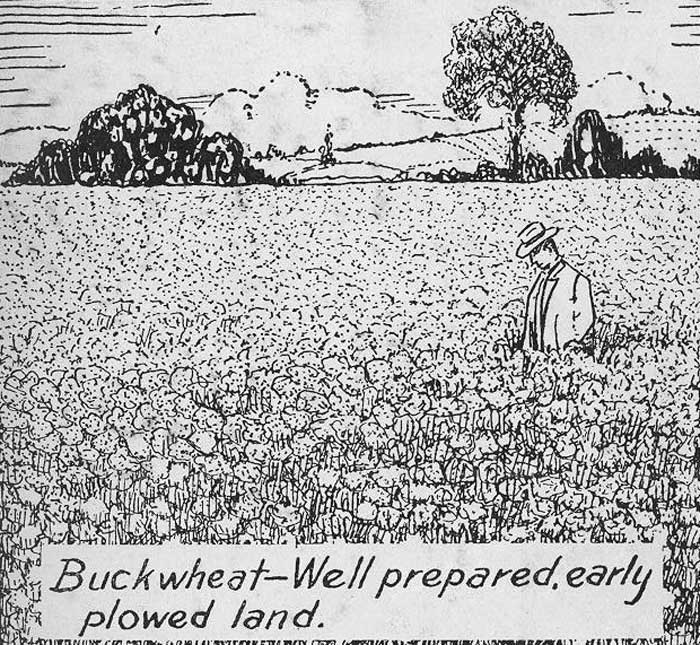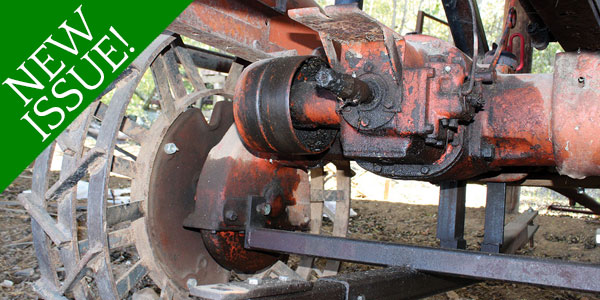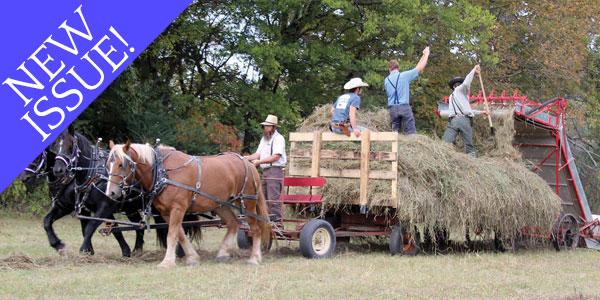
Soil, Vegetation, and Acidity
This is the entirety of Chapter 14 “Effect Of Character Of Soil On Plants” from the first volume of Audels Gardeners and Growers Guide. We are fortunate to count this four-volume set from Audels among our extensive library of antique agricultural volumes. While the book was originally published in 1928, this piece is still both applicable and helpful to the modern farm or garden.
“The varying character of soil of the same type in different localities has a marked effect on the plants, although there may be no perceptible difference in the appearance of the plants.
It has been noticed in England, for example, that certain pastures fatten sheep well in the summer. All about these pastures are others with exactly the same type of plants, but the plants grow more slowly, producing more stem and less leaf and are less nutritious and incapable of fattening sheep. The soils seem to be identical. In other pastures the vegetables cause diarrhea, while similar vegetation on adjoining pasture does not.
It is possible that a considerable difference may be found in vegetables and fruits from different farms in the same locality.
“Specialists have recently discovered the importance of vitamins and the foods which contain them and later may establish a method of determining the exact food value of fruits and vegetables from different types of soils and different soils of the same type.
Many crops will not thrive on acid soils, these include: Alfalfa, Red Clover, Timothy, Kentucky Blue Grass, Corn, Oats, Parsnip, Pepper, Pumpkin, Salsify, Squash, Spinach, Beets, Barley, Sorghum, Celery, Currant, Cabbage, Cauliflower, Cucumber, Lettuce, Onion, Okra, Tobacco, Kohlrabi, Peanut, Egg Plant, and most flowering ornamental plants.
Some plants require acid soil or do not object to it. It is beneficial to all the Ericaceae family, which includes: Huckleberry, Blueberry, Cranberry, Heath, Wintergreen, Azalea, Arbutus, Andromeda, Sorrel Tree, Kalmia, Rhododendron, and Acacia.
Other plants that do not object to slight acidity include: Strawberry, Blackberry, Turnip, Watermelon, Rhode Island Bent Grass, Red Top, Potato, Sweet Potato, Carrot, Radish, Velvet Bean, Ferns, Raspberry, Blackcap, Soybean, Cowpea, Hairy Vetch, Crimson Clover, Rye, Buckwheat, Millet, Lupine, and Castor Oil Bean.
A proper selection of the plants in the table last given, above, may make it possible to cultivate acid soils profitably, where the expense of correcting the acidity would be greater than the owner could afford.
The ericaceae are particularly suitable for soils too acid for other crops. This family includes cranberry, huckleberry, blueberry, and others in the table given above.
Some of the composite plants do not seem to object to slightly acid soil. The composite is the largest natural order of plants, containing more than 10,000 species, estimated at about one-tenth of all the flowering plants. The Dandelion is of this family. See a botany guide for a complete list of these plants.
Action of Lime. -Lime neutralizes acidity of the soil, or as generally stated, “lime sweetens the soil.” Lime checks some plant diseases, but may promote others as it does in increasing scab in potatoes.
Lime is limestone or oyster shells, and it is used in several different forms. Quick lime is unslaked lime, also called lump lime. Ground lime is lump lime, ground. Water slaked lime is lime slaked by wetting. Hydrated lime is lump lime, ground fine, screened through fine sieves and hydrated commercially. Adding the water or hydrating, adds 32 per cent to the weight. Thus 100 lbs. of lump lime when hydrated will weigh 132 lbs. When hydrated, the lime is packed in paper bags. Air slaked lime is lump lime which has been exposed to the air. Ground limestone is limestone ground to a fine powder. Oyster shells when pulverized have the same value as pulverized limestone.
Soils respond much more readily to lime than to ground limestone. The use of lime results in the loss of nitrogen, through causing the rapid decay of organic matter and therefore should never be used on freshly manured land.
Lime is more effective in granulating clay soils than is ground limestone. Marl and gypsum are forms of lime, but are not promptly effective in correcting acid soils.
Abundance of rainfall causes excessive leaching of plant food materials from the soil. Calcium is the plant food most easily leached. Semi-arid soils, as a rule, when well supplied with lime are rarely acid. This leaching is hastened by the solvent action of carbonic acid gas, formed in the soil by the decomposition of organic matter, which converts the calcium compounds into soluble calcium bicarbonate.
Soluble iron or aluminum compounds are detrimental to plant growth and occur in harmful form in the absence of calcium.
The amount of calcium and magnesium removed in the crop from one acre, is given below, expressed in pounds per acre:
A four ton crop of any of the common legumes removes from 120 to 140 pounds of calcium. Analysis has shown that alfalfa, grown on well limed land, contains fifty pounds of calcium per ton. Calcium and magnesium are supplied to the soil by the use of lime.
Read more from Audels Gardeners and Growers Guide:
Farm Manure
How To Store Vegetables
If you are interested in either loaning us an antique volume to use in reprinting or republishing selections from, or there is a particular volume/selection you wish to see on our website or in the pages of Small Farmers Journal, please contact our office via phone, email, or good old-fashioned pen and paper.





